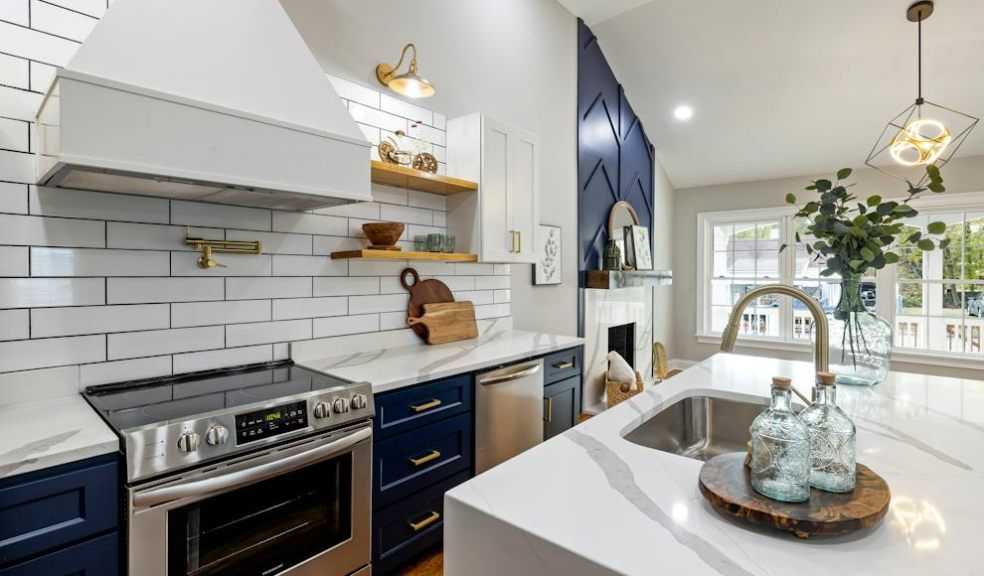
Sustainable Kitchen Renovations: A Guide for Exeter Homeowners
In the heart of Exeter, a new trend is taking root among homeowners – the shift towards sustainable living, starting with one of the most vital spaces in our homes: the kitchen. Today, more than ever, the emphasis on eco-friendly practices is not just a global movement but a local one, deeply felt within our Exeter community. This article addresses the growing interest of Exeter homeowners in transforming their kitchens into sustainable havens – spaces that are not only aesthetically pleasing but also environmentally responsible.
As we delve into sustainable kitchen renovations, we focus on how homeowners in Exeter can integrate green practices into their kitchen design and functionality. From selecting materials that minimize environmental impact to choosing appliances that conserve energy, this guide is crafted to help you create a kitchen that aligns with your eco-conscious values. We aim to provide you with practical insights and actionable advice, ensuring that your kitchen renovation adds value to your home and contributes to a healthier planet.
This journey towards a sustainable kitchen renovation is about making informed choices that reflect a commitment to environmental stewardship and a sustainable lifestyle. Whether planning a major remodel or looking to make more minor eco-friendly upgrades, this article is your companion in making your kitchen a testament to sustainable living in Exeter.
Key Elements of Sustainable Kitchen Renovations
Embarking on a sustainable kitchen renovation involves more than just a fresh coat of paint or new appliances. It's about creating an eco-friendly, efficient space that aligns with your lifestyle and values. Understanding the key elements of sustainable kitchen renovations is crucial, especially when considering the cost of a kitchen remodel. Here, we explore these elements, focusing on how they contribute to environmental sustainability and potential cost savings.
A. Eco-Friendly Materials and Appliances
- Sustainable Materials: The choice of materials plays a significant role in the sustainability of your kitchen renovation. Options like bamboo for flooring or cabinetry, recycled glass countertops, and low-VOC (volatile organic compounds) paints reduce environmental impact and often come with the added benefit of durability and aesthetic appeal.
- Energy-Efficient Appliances: Investing in energy-efficient appliances is a cornerstone of sustainable kitchens. Look for ENERGY STAR-rated refrigerators, dishwashers, and ovens, which consume less energy, reducing your carbon footprint and utility bills.
B. Design Considerations for Sustainability
- Maximizing Natural Light and Ventilation: A well-designed sustainable kitchen maximizes natural light and ventilation. Consider larger windows or skylights, and ensure good airflow to minimize the need for artificial cooling and lighting.
- Water-Saving Fixtures: Incorporating water-efficient fixtures like low-flow faucets can significantly reduce water usage. This conserves a vital resource and cuts down on your water bills.
C. Addressing the Cost of a Kitchen Remodel
When planning a sustainable kitchen renovation, it's essential to consider the cost of a kitchen remodel. Sustainable renovations can sometimes have a higher upfront cost, but they often lead to long-term savings through reduced energy and water bills. Additionally, using durable materials can decrease the need for future repairs and replacements. Budgeting for a sustainable kitchen remodel requires carefully balancing initial investment and long-term financial and environmental benefits.
Summary
The key to a successful sustainable kitchen renovation is thoughtful planning and selecting eco-friendly materials and appliances. By considering these elements, homeowners in Exeter can create a kitchen that not only meets their aesthetic and functional needs but also aligns with their commitment to sustainability, all while keeping an eye on the project's overall cost.
Implementing Sustainable Renovations in Exeter
For homeowners in Exeter looking to embark on a sustainable kitchen renovation, turning plans into action requires a blend of local knowledge, expert advice, and a keen understanding of eco-friendly practices. This section provides a roadmap for implementing these renovations effectively in Exeter.
A. Leveraging Local Resources and Expertise
- Finding the Right Suppliers and Contractors: Connect with local suppliers specializing in sustainable materials. In Exeter, some businesses offer eco-friendly renovation supplies, from recycled glass countertops to sustainably sourced wood. Additionally, seek contractors with experience in green building practices to ensure your renovation meets sustainability standards.
- Utilizing Local Knowledge: Local architects and designers can provide valuable insights into incorporating regional characteristics into your kitchen design. Their understanding of Exeter's climate, available materials, and design trends can be instrumental in creating a sustainable and functional kitchen space.
B. Budgeting for Sustainable Renovations
- Understanding Cost Implications: Sustainable renovations can vary in cost. Some eco-friendly materials or appliances might be more expensive upfront but offer long-term savings. Budgeting carefully is essential, considering both the initial investment and potential energy and water savings.
- Seeking Financial Incentives: Investigate if there are any local grants, incentives, or rebates in Exeter for homeowners undertaking sustainable renovations. Such financial incentives can offset the initial costs of eco-friendly upgrades.
C. Ensuring Compliance and Sustainability Standards
- Adhering to Building Regulations: Ensure your kitchen renovation complies with all relevant building codes and regulations in Exeter. This includes obtaining necessary permits and ensuring all installations are up to standard, especially when incorporating new technologies or unusual materials.
- Sustainability Certification: Consider seeking sustainability certifications for your kitchen, such as the Leadership in Energy and Environmental Design (LEED) certification. This adds value to your property and ensures that your kitchen meets high environmental and efficiency standards.
Summary
Implementing a sustainable kitchen renovation in Exeter involves careful planning, the right partnerships, and a commitment to eco-friendly practices. By leveraging local resources, budgeting wisely, and ensuring compliance with sustainability standards, homeowners can successfully transform their kitchens into modern, efficient, and environmentally responsible spaces. This journey contributes to a healthier planet and enhances the value and appeal of your home in Exeter.
Conclusion: Charting a Path Towards Sustainable Living in Exeter
As we conclude our exploration into sustainable kitchen renovations for homeowners in Exeter, it becomes clear that such endeavors are more than just a trend; they represent a significant shift toward responsible living. This journey of creating eco-friendly kitchens is a statement of personal style and functionality and a commitment to preserving our environment for future generations.
The key takeaways from this guide underscore the importance of thoughtful planning, the selection of sustainable materials, energy-efficient appliances, and the integration of eco-friendly design principles. While managing the cost of a kitchen remodel within sustainable parameters may pose some challenges, the long-term financial and environmental benefits are substantial. By investing in sustainable kitchen renovations, Exeter homeowners can significantly reduce their ecological footprint while enhancing their quality of life. Sustainable kitchens also potentially increase the value of their property, making it an attractive feature in the Exeter housing market.
Moreover, this approach to kitchen renovation reflects Exeter's broader commitment to sustainable practices. By choosing eco-friendly options, homeowners contribute to a larger movement of environmental stewardship and sustainability within the community.
In summary, sustainable kitchen renovations allow Exeter homeowners to blend personal style with ecological responsibility. It's about making informed choices that benefit both the individual and the environment. As we move forward, embracing these sustainable practices in our homes can lead to a healthier, more efficient, and environmentally conscious way of living in Exeter.














